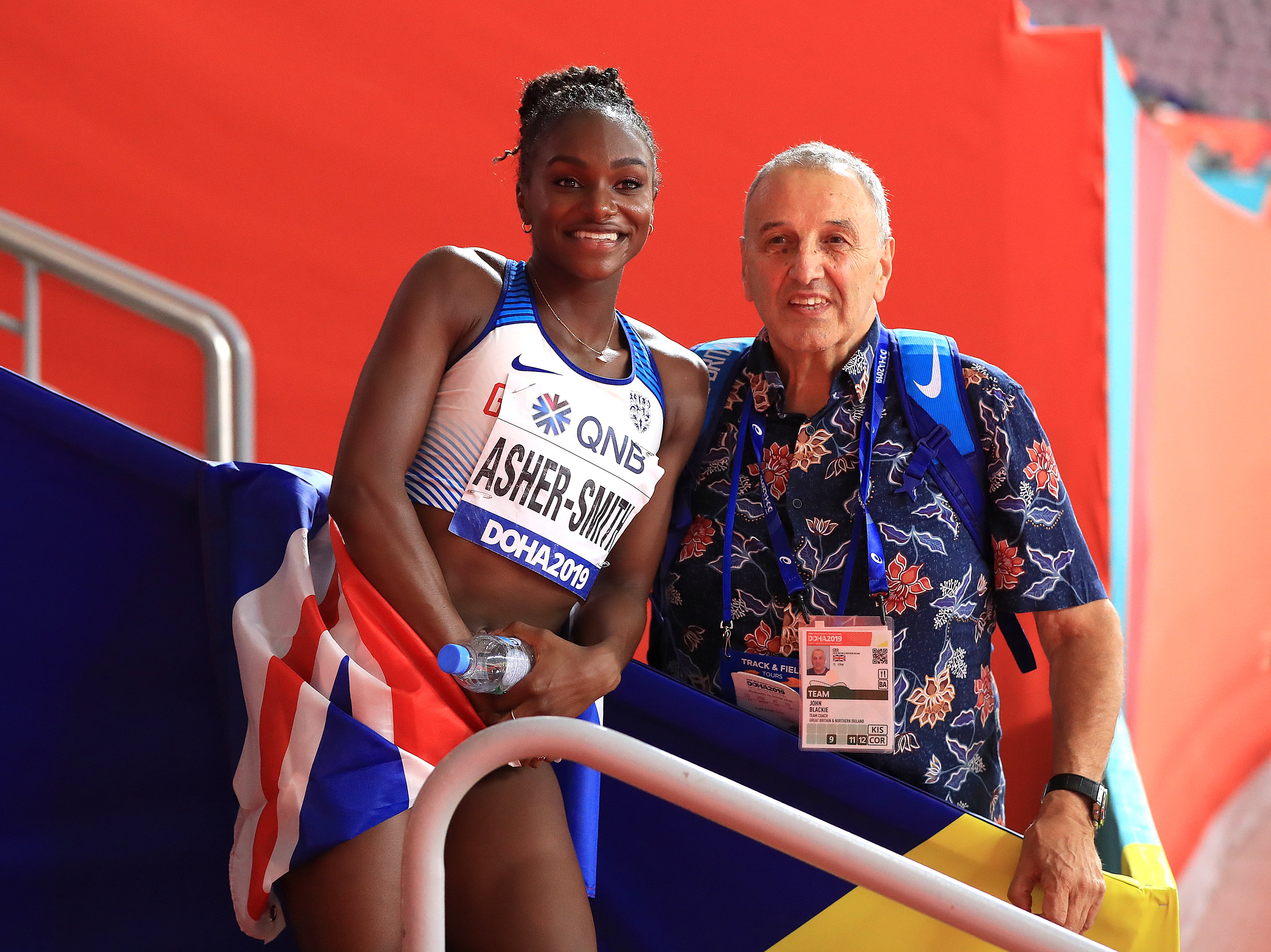Dina Asher-Smith: Steve Cram highlights importance of coach to Team GB sprinter
The British athlete is going for gold in the women’s 100m and 200m.

Your support helps us to tell the story
From reproductive rights to climate change to Big Tech, The Independent is on the ground when the story is developing. Whether it's investigating the financials of Elon Musk's pro-Trump PAC or producing our latest documentary, 'The A Word', which shines a light on the American women fighting for reproductive rights, we know how important it is to parse out the facts from the messaging.
At such a critical moment in US history, we need reporters on the ground. Your donation allows us to keep sending journalists to speak to both sides of the story.
The Independent is trusted by Americans across the entire political spectrum. And unlike many other quality news outlets, we choose not to lock Americans out of our reporting and analysis with paywalls. We believe quality journalism should be available to everyone, paid for by those who can afford it.
Your support makes all the difference.Olympic silver medallist Steve Cram has highlighted the importance the coach’s role to athletes both on and off the track.
The athletics programme at Tokyo 2020 begins on Friday when the likes of British medal favourite Dina Asher-Smith will need to deal with an intense public spotlight as well as focus on their performance.
One of the biggest stories of these Olympics so far has been the withdrawal of four-time gold medal-winning gymnast Simone Biles from her events citing a need to prioritise her mental wellbeing.
Cram, runner-up in the men’s 1,500 metres in 1984 and a coach of elite athletes, knows well the pressures competitors face.
Cram told the PA news agency: “When you’ve got athletes like Simone Biles talking about her mental health issues, your coach, family and the support network around you really need to step up and provide the support mechanisms that athletes need.
“Coaches themselves need to become psychologists. It isn’t just about getting your athlete physically ready, it is about getting them mentally ready for what they are going to face.
“That can be preparing them for those pressures that perhaps, particularly if they are young and inexperienced, come because they aren’t really aware the Olympics are so different, that the spotlight is so intense.
“And for those that have been there before, that’s how they cope with the public expectation that they might not have had to deal with before.”
Coaches have been referred to as ‘invisible heroes’ by some but Cram is pleased that awareness of their importance is growing.
Cram, who hopes more people can be inspired to take up coaching, said: “I wouldn’t say coaches are the unsung heroes – because to the athletes they are never unsung – but that role is something which I am glad to see is getting a bit more recognition now.”

Cram believes Asher-Smith, who is targeting success in the women’s 100m and 200m, has an excellent set-up.
Cram, 60, said: “Dina has got a great coach, John Blackie, who has done a fantastic job throughout her whole career of getting her ready for the major championships. Every time we have seen her this year she has looked fantastic.
“She is definitely capable of winning a medal but it is going to be tough, as it always is at an Olympic Games.”
Asher-Smith is not the only British medal prospect in Tokyo with Laura Muir, Katarina Johnson-Thompson and Eilish McColgan, among others, hoping to excel.
Cram said: “In the middle distances Laura Muir is going to lead things but we’ve got Keely Hodgkinson and Jemma Reekie in the (women’s) 800, Oliver Dustin, Elliot Giles in the (men’s) 800, Josh Kerr and Jake Wightman in the 1,500. They are all going to be in the mix.
“Katarina Johnson-Thompson, coming back from a serious injury, hasn’t been able to compete as much as she would have liked but, knowing her, she’ll raise her game probably above her fitness level.
“There’s Holly Bradshaw in the pole vault and people forget how well Callum Hawkins has run in the last two major championships. He’s very good when the conditions are tough, which they will be.
“Wherever you look in the team, we’ve got people who have got a chance of maybe sneaking in there.”
:: Find out how to get into coaching, or ways to take the next step on your coaching journey, at ukcoaching.org.
Join our commenting forum
Join thought-provoking conversations, follow other Independent readers and see their replies
Comments